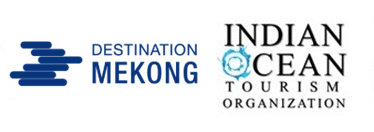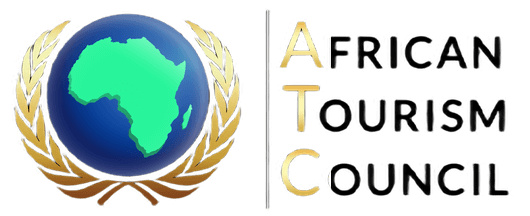About
The idea and implementation for a Small Islands Developing States Economic Community (SIDSEC) was conceived to develop a common market integrating 50+ countries across three geographic regions, being the Caribbean, the Pacific and the Atlantic, Indian Ocean, Mediterranean and South China Sea (AIMS).
Being pragmatic in its approach to economic integration, SIDSEC would evolve with time as a result of differing economic and political systems, as well as differing levels of economic development; and this would mean that regional economic integration would not be a drag on the growth plans of SIDS countries, rather, they would take ‘rising tide’ stance, a ‘prosper thy neighbor’ attitude, as they address the development gaps amongst its countries.

The aggregate population of all the SIDS is 65 million, slightly less than 1% of the world’s population, yet this group faces unique economic, environmental, human and social challenges. The small landmass and population of SIDS constrain their domestic technical and institutional capacity, prevent economies of scale and cause land competition.
The remoteness of SIDS, reflected in their poor connectivity and high transportation costs, hinders competitiveness and reduces their participation in international markets, however the opportunity harnessing their unique resources to overcome vulnerabilities, advance development and reap long-term benefits conceiving a blueprint for concrete action by SIDS governments, their development partners, the private sector and civil society must comprise of:
- a SIDS economic ecosystem as an integral part of the global economy
- sustainably innovative, resilient and inclusive long-term infrastructure sector planning
- a resurgence for SIDS travel and tourism with unique value-propositions
- integrated and sustainable renewable energy solutions
- climate change adaptation and mitigation strategy
- investment framework supporting SIDS development objectives
Framing a SIDSEC integration, domestic reform, and economic transformation facilitates unprecedented positive opportunities for global and regional engagements across AIMS, and an equitable and sustainable SIDS, while at the same time managing effectively the adjustment challenges issues of corruption, income disparity and social inequity, climate change, natural disasters, and resiliency, poverty and unemployment, and agriculture and food security remains the most pressing problems in SIDS countries.
Changing the economics of globalization across SIDS, SIDSEC must herald the era of ‘digital globalization’ for a digitally connected global SIDS economy where data flows are an increasingly important factor shaping globalization, and not just goods and services, instead allowing SIDS entrepreneurs micro, small and medium enterprises (MSMEs) reach global markets beyond SIDS shores.
Objective
- create a deeply integrated and highly cohesive SIDS economy that would support sustained high economic growth and resilience even in the face of global economic shocks, Covid-19 pandemic and volatilities
- engender a more equitable and inclusive economic growth in SIDS that narrows the development gap, eliminates if not reduces poverty significantly, and sustains high growth rates of per capita income
- foster robust productivity growth through innovation, technology and human resource development, and intensified regional research and development that is designed for commercial application to increase SIDS’s competitive edge in moving the region up the global value chains (GVCs) into higher technology and knowledge-intensive manufacturing and services industries
- promote the principles of good governance, transparency, and responsive regulatory regimes through active engagement with the private sector, community-based organisations, and other stakeholders within SIDS
- widen SIDS people-to-people, institutional, and infrastructure connectivity sub-regional cooperation projects that facilitate movement of capital as well as skilled labor and talents
- create a more dynamic and resilient SIDS, capable of responding and adjusting to emerging challenges through robust national and regional mechanisms that address food and energy security issues, natural disasters, economic shocks, and other emerging trade-related issues as well as global mega trends
- incorporate a sustainable growth agenda that promotes a science-based use of, and support for, green technology and energy
- reinforce SIDS centrality in the emerging regional economic architecture by maintaining SIDS’s role as the center and facilitator of economic integration in the region; and
- work towards a common position and enhance SIDS’s role and voice in global economic fora

UN Programmes
Action in Support of SIDS
While many SIDS have made advances in achieving sustainable development, their inherent vulnerabilities including small size, remoteness, climate change impacts, biodiversity loss and narrow resource base mean that progress for many continues to be hampered, and their status as a special case for sustainable development remains.
In 2014, the international community gathered in Samoa for the Third International Conference on Small Island Developing States to forge a new pathway for the sustainable development of this group of countries.
The SAMOA Pathway aims to address the unique challenges faced by SIDS and to support their development via the five priority areas:
- promote sustained and sustainable, inclusive and equitable economic growth with decent work for all, sustainable consumption and production and sustainable transportation
- act to mitigate climate change and adapt to its impacts by implementing sustainable energy and disaster risk reduction programs
- protect the biodiversity of SIDS and care environmental health by mitigating the impact of invasive plant and animal species and by properly managing chemicals and water, including hazardous waste, as well as protecting oceans and seas
- improve human health and social development through food security and nutrition, improved water and sanitation, reducing the incidence of non-communicable disease and by promoting gender equity and women’s empowerment
- foster partnership among SIDS, UN Agencies, development partners and others to achieve these goals








